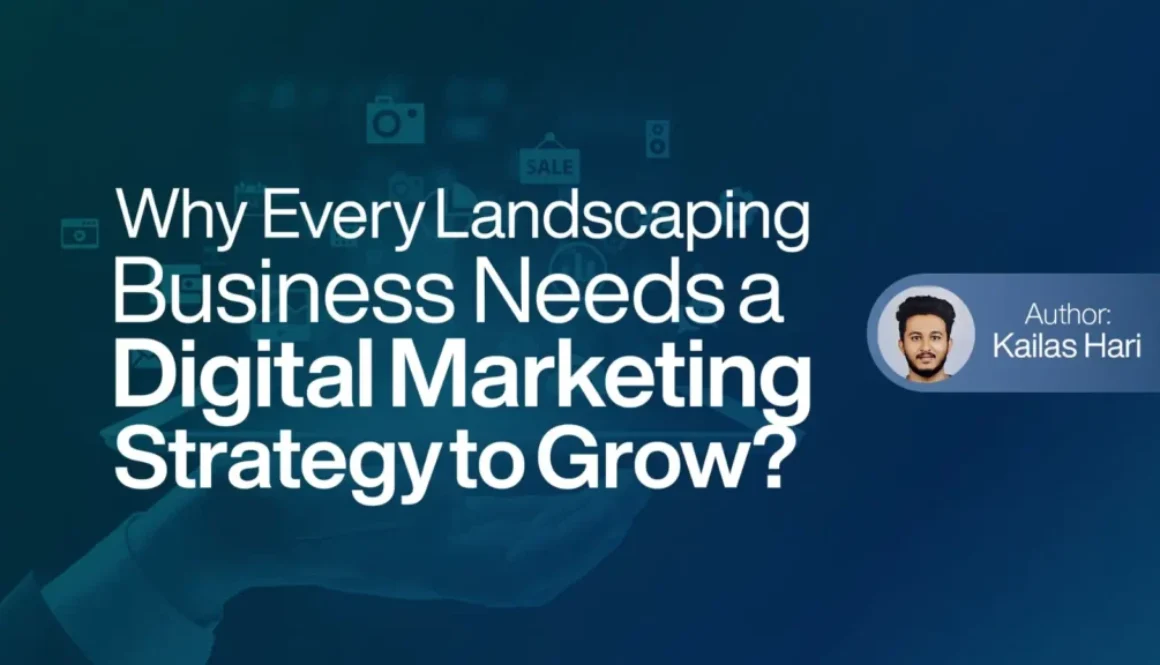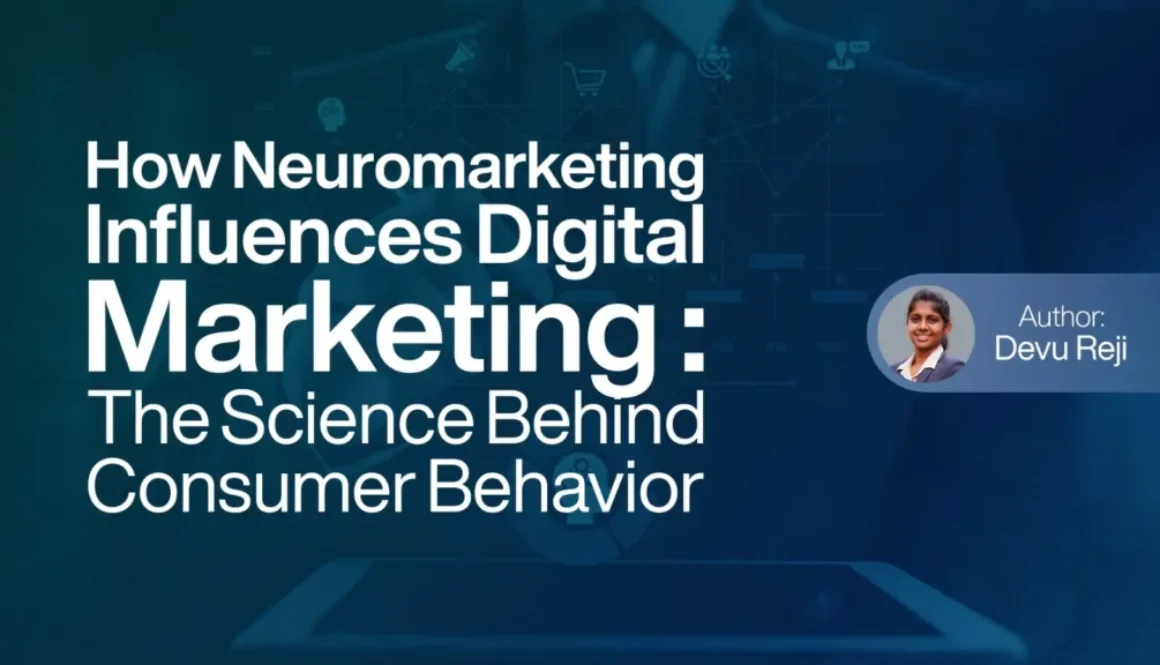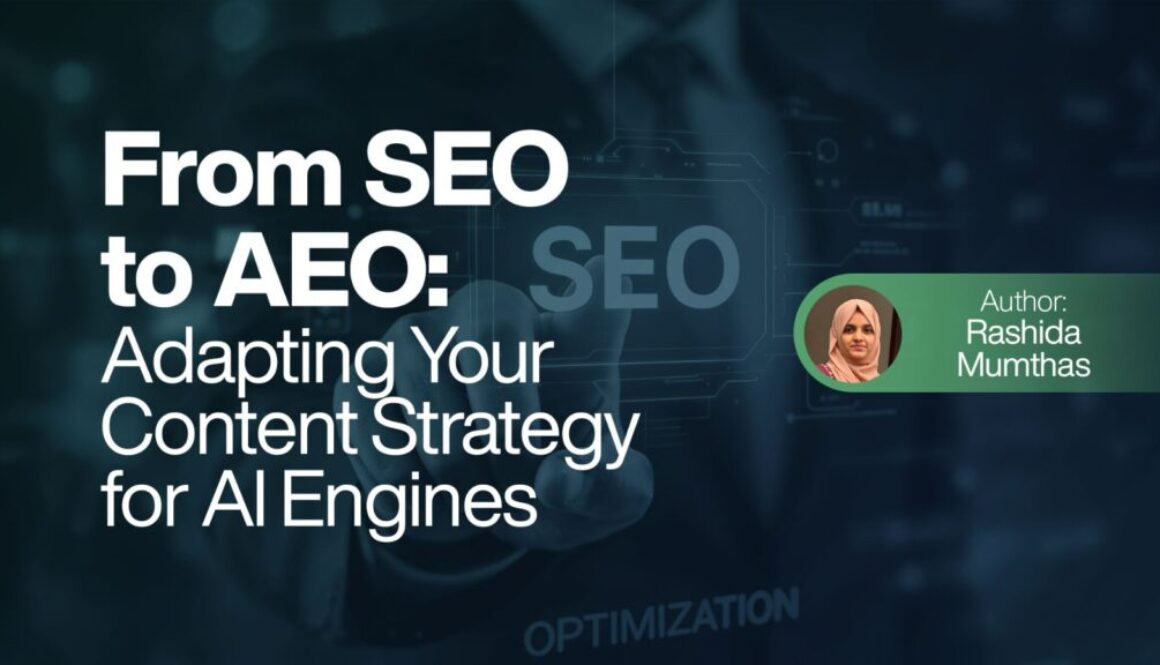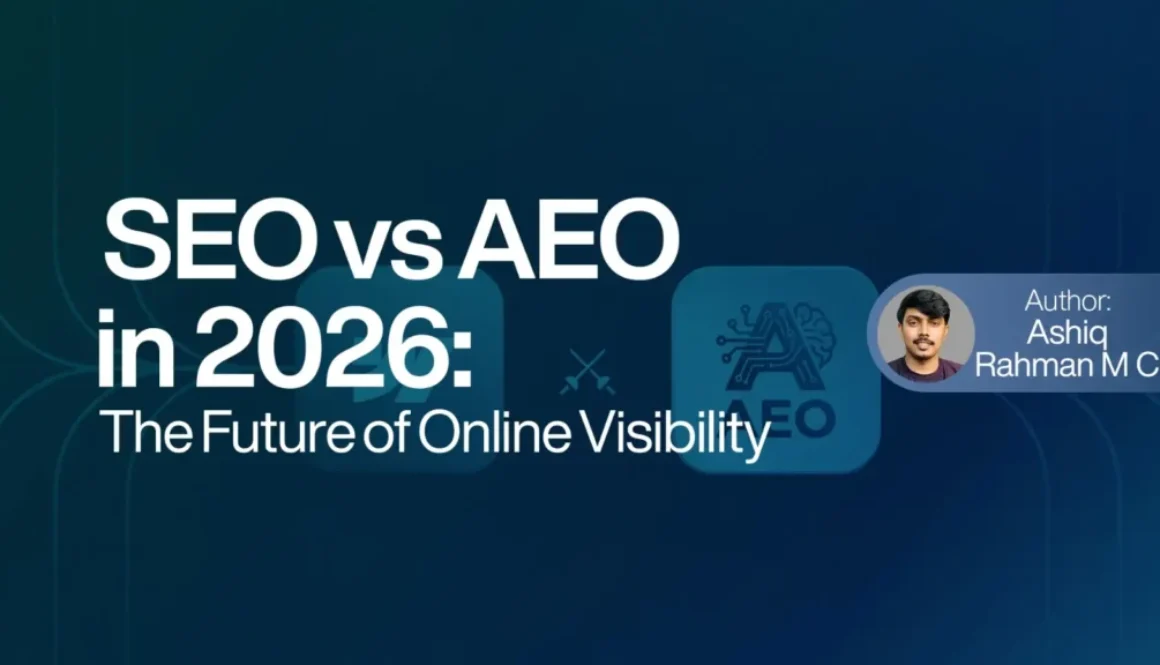Digital Marketing Trends in 2026: What’s Shaping the Future
As we step into 2026, digital marketing is no longer just about ads and SEO — it’s transforming into an AI-powered, hyper-personalised, immersive ecosystem that prioritises customer experience, ethical data use, and interactive engagement. The landscape has shifted rapidly, and brands that adapt early will gain a competitive edge.
Let’s explore the key trends redefining digital marketing in 2026.
Table of Content
1. AI Takes Centre Stage (Generative & Predictive)
Artificial Intelligence (AI) is no longer optional — it’s the backbone of modern marketing.
Content Creation & Personalisation: AI tools can generate tailored content, personalised email sequences, and ad copy at scale, making campaigns more efficient and impactful. Tools powered by generative AI help marketers craft visuals, text, and multimedia faster than ever.
Predictive Analytics: Rather than reacting to user behaviour, brands now forecast what will happen next — when someone may convert, what they’ll buy, and how best to retain them. Predictive analytics helps brands optimise funnels before problems arise.
Why It Matters: AI increases efficiency and ROI while enabling campaigns that feel tailored to individuals — not segments.
2. Search Is Reimagined: Zero-Click & AI-First Optimisation
Traditional keyword SEO is being replaced by a new model in which brands must optimise for AI responses and zero-click experiences.
Generative Engine Optimisation (GEO): Content must be structured to appear in AI answer summaries, voice assistants, and chat interfaces — not just on Page 1 of Google.
Voice & Visual Search: With smart speakers and image search becoming common, optimising for natural language and visuals is essential.
Example: A blog that includes structured FAQs, schema markup, and concise, fact-based answers has a higher chance of being shown directly in AI search results without users clicking anywhere.
3. Hyper-Personalisation at Every Touchpoint
Today’s consumers expect more than basic personalisation — they want experiences that feel designed just for them.
Dynamic Content: Website content, offers, and product suggestions now change based on real-time behaviour and past interactions.
Behavioural Segmentation: Instead of broad lists, audiences are segmented by micro-behaviours like time on page, past purchases, browsing paths, and sentiment.
Outcome: Brands that deliver hyper-personalised experiences see better engagement, conversions, and customer loyalty.
4. Short-Form Video & Video Commerce Domination.
Video content isn’t new — but in 2026 it’s the core driver of discovery and sales.
Short-Form Video Platforms like TikTok, Instagram Reels, and YouTube Shorts continue to dominate attention and influence buying decisions.
Video-Led Commerce: Live shopping, shoppable video ads, and interactive product showcases are converging content with purchasing, making videos a direct sales channel.
Pro Tip: Treat video as a conversion tool — integrate product tags, CTAs, and in-stream checkouts instead of just entertainment.
5. Immersive Experiences with AR & VR
Interactive technologies like Augmented Reality (AR) and Virtual Reality (VR) are moving from novelty to necessity.
Try-before-you-buy experiences (e.g., virtual furniture placement or makeup try-ons) reduce purchase anxiety and returns.
Virtual showrooms and 360º product experiences are becoming standard in e-commerce.
Takeaway: Immersive experiences boost engagement and let customers experience products instead of just seeing them.
6. Data Privacy & First-Party Data Strategies
With the demise of third-party cookies, brands must become good stewards of data.
Zero-Party Data: This is data that customers choose to share — preferences, interests, quizzes, and surveys.
Consent-First Marketing: Transparency builds trust and improves data quality.
Result: Ethical data practices improve customer trust and fuel better personalization without compromising privacy.
7. Programmatic & Native Advertising Evolves
Ads that blend seamlessly into user experiences (native ads) and those delivered via automated, data-driven bidding (programmatic) are becoming more effective.
Native advertising accounts for a larger share of ad spend due to higher engagement rates.
Programmatic buying uses AI to place ads at optimal times and places with minimal human intervention.
Insight: Less intrusive ads that match content and intent outperform traditional interruptive ads.
8. Community & Creator-Led Strategies
Influencer marketing is evolving — content creators are becoming co-creators and strategic partners
Brands collaborate with creators on product design, storytelling, and campaigns rather than just sponsorships.
Niche communities on platforms like Discord, WhatsApp, or Reddit offer deep engagement opportunities.
Why This Matters: Authentic connections drive trust and community loyalty — foundational elements of long-term brand growth.
9. Cross-Channel Integration & Automation
Customers expect consistency
Automated Journeys: Email, SMS, social, and web interactions are now coordinated through smart automation platforms.
Unified Data Platforms help brands deliver coherent messages across channels.
Goal: A seamless experience boosts retention, CLV (Customer Lifetime Value), and brand recall.
10. Human-First Branding in an AI World
Despite AI’s dominance, authenticity and human relevance have never been more important.
Storytelling, empathy-led campaigns, and human-centric messaging differentiate brands in a crowded AI landscape.
Conclusion
In 2026, the brands that succeed will be those that balance technological innovation with emotional connection.
In 2026, digital marketing isn’t just about channels or platforms — it’s about context, experience, intelligence, and trust. AI will automate how we do marketing, but human creativity will shape why it matters. To thrive, marketers must embrace data, prioritise immersive experiences, intelligence, and trust. AI will automate how we do marketing, but human creativity will shape why it matters. To thrive, marketers must embrace data, prioritise immersive experiences, protect privacy, and build genuine relationships with their audiences.
Author Info
Mohammed Aslam KA, Best Digital marketer in Malappuram.
Learner of CDA India’s Best Online Digital Marketing Course.










